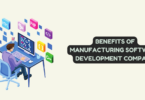
HR
The realm of Human Resources (HR) is one that constantly evolves, mirroring the dynamic nature of the workforce it serves. In this ever-changing landscape, certain skills stand out as essential for anyone aspiring to thrive in an HR career. These skills range from the ability to communicate effectively to a deep understanding of legal compliance. They form the backbone of successful HR practices, ensuring not just the smooth running of organizational processes but also fostering a positive workplace culture. This article explores ten critical skills necessary for a flourishing career in HR, providing insights for both seasoned professionals and those just beginning their journey in this field.
Communication Skills
Communication sits at the heart of HR. Whether it’s articulating company policies, mediating conflicts, or conducting interviews, effective communication is key. HR professionals must excel in all forms of communication – verbal, written, and non-verbal. They often act as the bridge between management and employees, requiring them to convey messages clearly and empathetically. Additionally, good communication skills aid in resolving misunderstandings and conflicts, ensuring a harmonious work environment. In essence, mastering the art of communication can significantly enhance an HR professional’s ability to manage and resolve the myriad of situations they encounter daily.
Empathy and Emotional Intelligence
Empathy and emotional intelligence are indispensable in understanding and addressing employee needs and concerns. In HR, these skills enable professionals to create a supportive and inclusive workplace culture. For instance, an HR professional with insights from an MBA in HR management may better appreciate the professional needs of employees, fostering a more empathetic approach to employee benefits and well-being initiatives. Emotional intelligence also involves self-awareness, self-regulation, and the ability to understand others’ emotions, all of which are critical in managing relationships and making informed decisions in the workplace.
Organizational Skills
HR encompasses a broad range of responsibilities, from recruitment and onboarding to managing employee records and benefits. Exceptional organizational skills are thus crucial for HR professionals to manage these varied tasks efficiently and effectively. This includes the ability to prioritize tasks, maintain meticulous records, and manage time efficiently. Good organizational skills ensure that HR processes run smoothly and comply with legal standards. They also enable HR professionals to provide timely and accurate information to employees and management, reinforcing the reliability and efficiency of the HR department.
Conflict Resolution Skills
Workplace conflicts are inevitable, and the ability to resolve them amicably is a valuable skill for HR professionals. Conflict resolution involves understanding the root causes of disputes, mediating between parties, and finding mutually acceptable solutions. HR professionals must be skilled in negotiation and possess a calm, objective demeanor to handle conflicts effectively. These skills not only help maintain a positive work environment but also contribute to employee satisfaction and retention, as employees feel valued and heard when their concerns are addressed fairly and promptly.
Knowledge of HR Laws and Regulations
In-depth knowledge of HR laws and regulations is non-negotiable for HR professionals. This expertise ensures that the organization stays compliant with labor laws, employment standards, and workplace safety regulations. It protects both the company and its employees from legal repercussions. Staying abreast of changes in laws and regulations is also crucial, as this field is subject to continuous updates and revisions. HR professionals must engage in ongoing learning and professional development to maintain this knowledge, ensuring that their organization’s policies and practices are always in line with current legal requirements.
Technological Proficiency
As the HR landscape becomes increasingly digitized, technological proficiency has emerged as a vital skill. This goes beyond basic computer literacy; HR professionals today need to be adept in using HR management software, data analysis tools, and digital communication platforms. From managing employee databases to analyzing workforce trends, technology plays a key role in modern HR practices. Staying updated with the latest HR technologies and software not only enhances efficiency but also allows for more strategic data-driven decision-making. HR professionals must continuously educate themselves on emerging technologies to remain relevant and effective in their roles.
Strategic Thinking
Strategic thinking in HR involves aligning HR strategies with the overall business objectives of the organization. This skill is crucial for contributing to long-term organizational success. HR professionals with strategic thinking capabilities can effectively plan workforce needs, develop talent management strategies, and implement policies that drive business growth. They play a key role in shaping the organizational culture and ensuring that the workforce is prepared to meet future challenges. Strategic thinking in HR means looking beyond day-to-day operations and considering the bigger picture, making decisions that not only benefit the HR department but the organization as a whole.
Leadership Skills
Leadership is not just for those at the top; in HR, leadership skills are essential at every level. HR professionals often lead teams, manage various projects, and are looked upon as role models within the organization. Effective leadership in HR means inspiring and motivating employees, making tough decisions when necessary, and guiding the organization through changes and challenges. It also involves being a champion for employee welfare and a custodian of the company culture. Good leaders in HR are approachable, trustworthy, and have the ability to influence positive changes within the organization.
Adaptability and Flexibility
The ability to adapt and be flexible is increasingly important in the fast-paced world of HR. This skill is about being open to change and able to adjust strategies and plans as circumstances evolve. HR professionals face various challenges, such as shifts in workforce dynamics, changes in labor laws, and evolving business strategies. Being adaptable means being able to handle these changes efficiently, without disrupting the flow of the organization. It also involves being open to new ideas and approaches, which is crucial in a field that is constantly evolving.
Training and Development Skills
Lastly, training and development are core functions of HR, and skills in this area are indispensable. HR professionals must be able to identify training needs within the organization, develop effective training programs, and facilitate learning and development opportunities for employees. This not only helps in enhancing the skills of the workforce but also plays a key role in employee engagement and retention. Effective training and development strategies ensure that employees are equipped with the necessary skills to perform their jobs effectively and are prepared for future roles within the organization.
Conclusion
In conclusion, these ten skills are essential for anyone looking to succeed in a career in HR. From communication and empathy to strategic thinking and adaptability, each skill plays a vital role in the effective management of human resources. As the field of HR continues to evolve, professionals must commit to continuous learning and development to stay ahead. By mastering these skills, HR professionals can significantly contribute to the success of their organizations, fostering a productive, engaging, and harmonious work environment.






